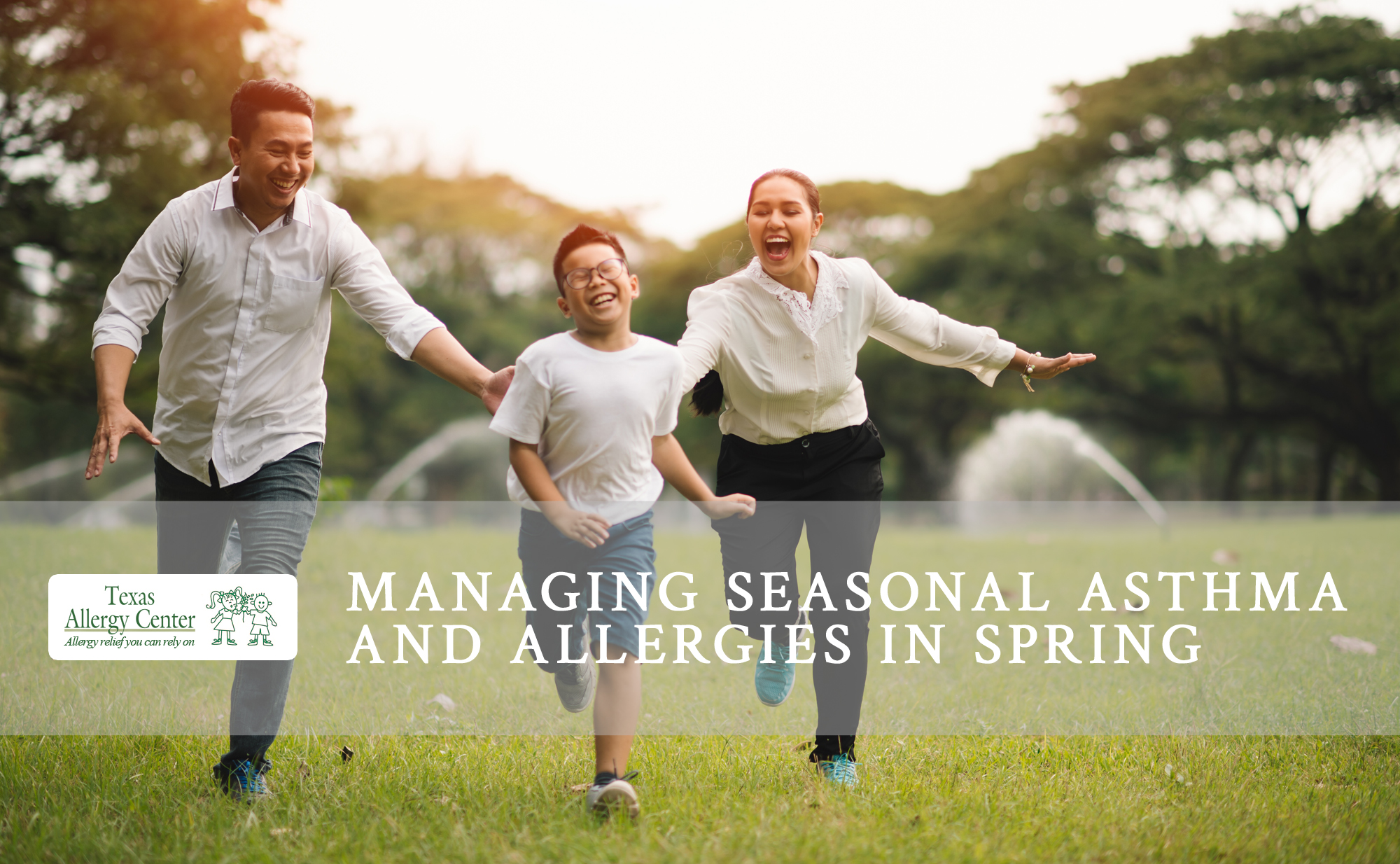
28 Feb Texas Allergy And Asthma Care Managing Seasonal Allergies and Asthma in Spring
Spring is a beautiful season marked by blooming flowers, budding trees, and warmer weather. However, for many people, spring also brings seasonal allergies and worsened asthma symptoms. Understanding these conditions and knowing how to manage them can help you enjoy the season to the fullest.
What are Seasonal Allergies?
Seasonal allergies, also known as hay fever or allergic rhinitis, occur when your immune system overreacts to allergens in the air. In spring, the primary culprits are pollen from trees, grasses, and weeds. When you inhale pollen, your immune system releases chemicals like histamine, leading to symptoms such as:
- Sneezing
- Runny or stuffy nose
- Itchy eyes, nose, and throat
- Watery eyes
- Coughing
THE LINK BETWEEN ALLERGIES & ASTHMA
For people with asthma, seasonal allergies can be more than just a nuisance. Allergic reactions can trigger asthma symptoms, leading to coughing, wheezing, shortness of breath, and chest tightness. This is known as allergic asthma, and it affects many asthma sufferers, particularly in the spring.Tips For Managing Seasonal Allergies and Asthma in Spring
- MONITOR POLLEN COUNTS: Check pollen forecasts and try to stay indoors when pollen levels are high. Keep windows closed, and use air conditioning with a clean filter.
- USE ALLERGY MEDICATIONS: Over-the-counter antihistamines, decongestants, and nasal sprays can help alleviate allergy symptoms. For asthma, your doctor may prescribe inhalers or other medications.
- MAINTAIN GOOD INDOOR AIR QUALITY: Use a high-efficiency particulate air (HEPA) filter in your home to trap allergens. Regularly clean and vacuum to reduce dust and pet dander.
- LIMIT OUTDOOR ACTIVITIES: If pollen counts are high, try to limit your time outdoors, especially during peak pollen times (usually early morning and late afternoon).
- WEAR A MASK: If you need to be outdoors during high pollen levels, wearing a mask can help reduce your exposure to allergens.
- STAY HYDRATED: Drinking plenty of water can help thin mucus and reduce congestion.
- FOLLOW YOUR ASTHMA ACTION PLAN: If you have asthma, make sure you have an asthma action plan in place and follow it closely. This plan will outline what to do when your asthma symptoms worsen.
- CONSULT YOUR DOCTOR: If you're having trouble managing your allergies or asthma, consult your doctor. They can help adjust your treatment plan to better control your symptoms.

Spring is a beautiful time of year, but it can be challenging for those with seasonal allergies and asthma. By understanding your triggers and following a comprehensive management plan, you can minimize the impact of these conditions and enjoy the season safely. If you’re unsure about how to manage your allergies or asthma, don’t hesitate to schedule an appointment with Dr Jane Lee at Texas Allergy Center for proper diagnosis and personalized treatment options. Stay informed, be proactive, and take control of your allergies and asthma for a more comfortable spring season! 214-370-5700

